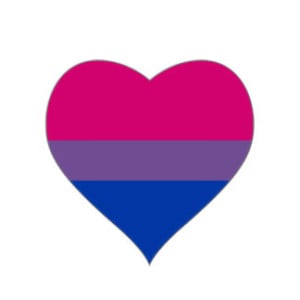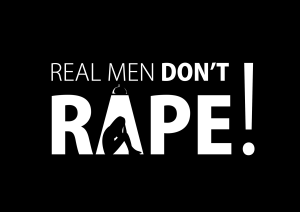
Source: Linked In
You’ve probably (hopefully) noticed that there isn’t just one way to be feminist. You don’t have to have hairy legs, you don’t have to have read feminist theory, and you don’t have to stop listening to Kanye West or Taylor Swift — or you can do all of that!
Feminism is filled with a diversity of perspectives, ideas, theories, and methods of action — and that’s a good thing!
There’s never a shortage of discord within the feminist community (especially in the online community, it seems).
These internal disagreements are often spoken about as being negative in nature. Sometimes it can seem like we’re too busy smashing each other to be smashing the patriarchy.
There’s this assumption in our culture that disagreement is always negative — that every time we don’t see eye-to-eye, one side is right and the other is wrong, and the sooner we figure out which is which, the better.
But what if we collectively decided that disagreement isn’t inherently bad?
Think about a recent disagreement that you’ve had with someone. What were the dynamics? Did it have a positive end result? Did it challenge you or your ideas in a positive way?
Often, when we approach disagreements with an open mind and a willingness to a listen, and when we check our privilege, they will actually lead to learning. We come out of it better and more knowledgeable.
So I’m here to argue that we need difference of opinion within the feminist community — both for the good of the movement and for the end of oppression.
1. Maybe You Don’t Disagree — Maybe You Just Have Unchecked Privilege
Checking your privilege is probably the most critical component to practice during a disagreement. Those with marginalized identities are going to have a better understanding of many different issues because they’ve lived them.
For example, when a white person disagrees with a person of color about the importance of the events happening in Ferguson, or when a thin person denies the importance of positive representations of fat bodies, they need to take a seat.
Those with multiple marginalized identities have had to fight for a place in the movement because privileged feminists have a history of ignoring or not accepting their points of view.
Trans women, women of color, and women with disabilities (to name a few) have been excluded from mainstream feminism in the past — and often, they still are today. No one has had their backs in solidarity because others were too busy being wrapped up in privilege.
Maybe instead of disagreeing, you need to learn to listen.
Make sure you’re not perpetuating this. Listen to those who have experienced marginalization that you haven’t. Because sometimes, as much as it might hurt, your personal feelings don’t matter.
2. Disagreement Inspires Critical Thinking
When we welcome debate and are excited to have our opinions challenged, that disagreement allows us to delve more deeply into our ideas.
We humans tend to do hold onto our beliefs — especially when they’re challenged — even when contrary evidence is presented! Psychological research has found that we shape our experiences around our beliefs so that everything in our world is consistent. It makes sense, then, that we’re reluctant to concede that we’re wrong: if we do, our world falls apart. Confirmation bias is our brain’s BFF.
But because of this, we end up missing out on all kinds of new information!
On the flip side, when we don’t think of debate as a threat, when we understand that actually, being wrong can allow us to grow as people and as activists, we can move beyond hostility and start to think critically. Our ideas can be shaped in new ways and be developed that much deeper.
It’s when you’ve had your ideas challenged that you begin to understand them. When you challenge your ideas and values within feminism itself, you are only going to expand your thinking and grow in your feminism!
If everyone agreed about feminism the way it is, nothing would ever change. New work would never be pioneered. Nothing ever actually changes when everyone has the same opinion and acts in the same way.
In fact, the discord within the movement has lead to more progress.
Think of intersectionality; this theory was created as a way to push back against feminism’s commonly committed crime of assuming everyone experiences oppression (specifically sexism) in the same ways. This disagreement led to the inclusiveness of the third wave, as well as an increased interconnectedness between all social justice movements.
Without Kimberlé Chrenshaw’s initial disagreement, the entire feminist movement as we know it today might not exist.
Similarly, you can grow in the development of your feminism through disagreement. Allow yourself to learn from others and their experiences. Learn theory you never knew existed. Amplify the voices of the marginalized. And above all, disagree!
Develop your own thinking and critically challenge yourself. It will only lead to your feminism becoming better and better.
3. Feminism Thrives from Difference
There’s a lot of chatter about what the true definition of a feminist is. A lot of people will go straight to Webster’s English dictionary to prove that feminism is about equality, while others find the dictionary to be a source of oppression itself (created by white men, for white men). Still others don’t think the primary goal of feminism is equality, but that it’s actually about liberation from marginalization and oppression.
The point is, there is a wide range of people who have a wide range of ideas, perspectives, and notions about feminism. Not everyone who calls themselves a feminist is going to practice the same principals, and that’s okay!
An example of this outside of the feminist movement is Christianity. There are many different sects within Christianity, all of which practice Christianity differently. They don’t all follow the exact same dogma, but they unite under the common label of Christian.
They have some things in common, but not everything. Does that make any one particular denomination better than another? Does it mean that Christianity as a whole isn’t as strong because of its members’ differences? I don’t think any Christian would argue that. It seems kind of ridiculous, doesn’t it?
The same can be said of the feminist movement. Yes, we’re going to have disagreements; we’re going to have different ideas, praxis, and methods. But that doesn’t mean that one way of thinking is more correct than another, or that one type of feminism has more legitimacy than another.
While feminism has a common goal, the routes we take to accomplish that goal are different — and they’re valid.
There’s an assumption that feminists have to stand together on all counts in order to create a strong movement, or else we’ll be overtaken by the masses waging attacks on our cause.
But although there is an undeniable power in numbers, that doesn’t mean that by all sharing the same opinion or practicing feminism in the same ways, we’re actually going to accomplish anything.
Feminism has never been a completely cohesive movement. In fact, it’s actually thrived with difference.
Many of the sub movements of feminism were created out of difference. For example, the exclusion of black women from both the male-dominated Civil Rights movement and the white female-dominated first wave of feminism led to the creation of Black Feminism.
Diversity within feminism has lead to more intersectionality and less oppression within the movement.
Don’t assume that just because someone identifies as a feminist, they’re going to see things the way you do. Welcome the disagreement and the difference — in fact, expect it! Embrace it.
***
Disagreeing with a fellow feminist is okay. It can often be productive.
If you allow yourself to keep an open mind and not listen to your defensive instincts, you’ll only get better.
So the next time you find someone saying “Actually, I disagree,” get excited! Disagreement can be a wonderful thing.
[do_widget id=”text-101″]
Erin McKelle is a Contributing Writer for Everyday Feminism. She’s an e-activist, video blogger, student, and non-profit advocate who has launched several projects, including Fearless Feminism and Consent is Sexy. In her spare time, Erin enjoys reading, writing bad poetry, drawing, politics and reality TV. You can visit her site here find her blogging at Fearless Feminism, Facts About Feminism, and Period Positive. Follow her on Twitter @ErinMckelle and read her articles here.
Search our 3000+ articles!
Read our articles about:
Our online racial justice training
Used by hundreds of universities, non-profits, and businesses.
Click to learn more




















